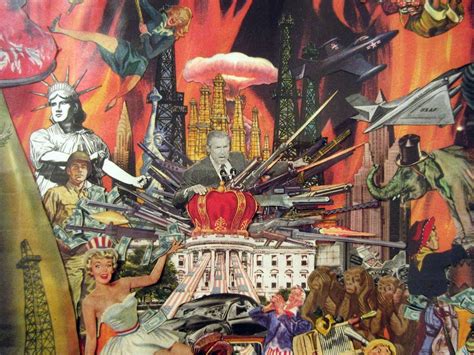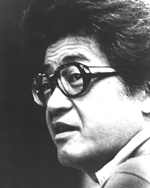A Quote by Immanuel Kant
If an offender has committed murder, he must die. In this case, no possible substitute can satisfy justice. For there is no parallel between death and even the most miserable life, so that there is no equality of crime and retribution unless the perpetrator is judicially put to death.
Related Quotes
We are left with nothing but death, the irreducible fact of our own mortality. Death after a long illness we can accept with resignation. Even accidental death we can ascribe to fate. But for a man to die of no apparent cause, for a man to die simply because he is a man, brings us so close to the invisible boundary between life and death that we no longer know which side we are on. Life becomes death, and it is as if this death has owned this life all along. Death without warning. Which is to say: life stops. And it can stop at any moment.
So to be sick unto death is, not to be able to die-yet not as though there were hope of life; no, the hopelessness in this case is that even the last hope, death, is not available. When death is the greatest danger, one hopes for life; but when one becomes acquainted with an even more dreadful danger, one hopes for death. So when the danger is so great that death has become one's hope, despair is the disconsolateness of not being able to die.
Birth leads to death, death precedes birth. So if you want to see life as it really is, it is rounded on both the sides by death. Death is the beginning and death is again the end, and life is just the illusion in between. You feel alive between two deaths; the passage joining one death to another you call life. Buddha says this is not life. This life is dukkha - misery. This life is death.
I support the death penalty. I think that it has to be administered not only fairly, with attention to things like DNA evidence, which I think should be used in all capital cases, but also with very careful attention. If the wrong guy is put to death, then that's a double tragedy. Not only has an innocent person been executed but the real perpetrator of the crime has not been held accountable for it, and in some cases may be still at large. But I support the death penalty in the most heinous cases.
Someone's killed 100,000 people. We're almost going, "Well done! You killed 100,000 people? You must get up very early in the morning! I can't even get down the gym. Your diary must look odd: 'Get up in the morning, death, death, death, death, death, death, death - lunch - death, death, death - afternoon tea - death, death, death - quick shower ...' "
You would know the secret of death. But how shall you find it unless you seek it in the heath of life? The owl whose night-bound eyes are blind unto the day cannot unveil the mystery of light. If you would indeed behold the spirit of death, open your heart wide unto the body of life. For life and death are one, even as the river and sea are one. For what is it to die but to stand naked in the wind and to melt into the sun?
Suicide is an escape from life. What is life? An escape from death. This means that each of us must die twice. There is the death waiting for us ahead, and the death that comes pursuing from behind.... Once you are free at least from the death that comes pursuing you, you can relax and enjoy life as you go along.
How easy is murder when one calls it by a different name? How much easier is it for the conscience to condone "reaping" than "killing"-and when one knows that death isn't the end, does it stop the killing hand for fear of retribution, or does it simply make it easier to kill, because, if life continues, how can murder be murder at all?
Laughter. Yes, laughter is the Zen attitude towards death and towards life too, because life and death are not separate. Whatsoever is your attitude towards life will be your attitude towards death, because death comes as the ultimate flowering of life. Life exists for death. Life exists through death. Without death there will be no life at all. Death is not the end but the culmination, the crescendo. Death is not the enemy it is the friend. It makes life possible.
He emphasised basic truths: you are not dying yet, you have to live your life until you are. Underpinning them was the belief that the grim reality of impending death can be talked away by trying to invest in the present reality of life. I didn’t believe that at the time, but now I do. By definition, you have to live until you die. Better to make that life as complete and enjoyable an experience as possible, in case death is shite, which I suspect it will be.







































